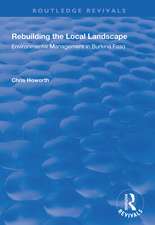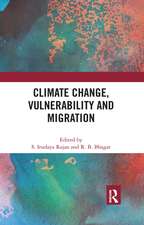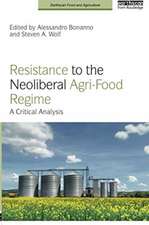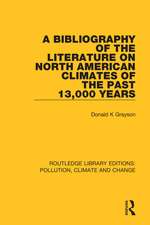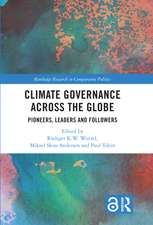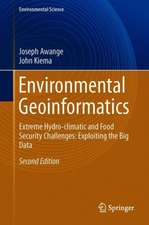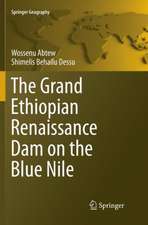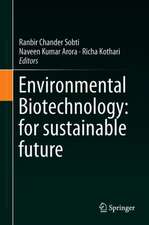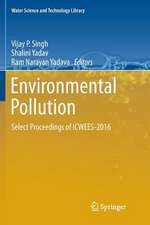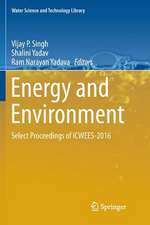Our Extractive Age: Expressions of Violence and Resistance: Routledge Studies of the Extractive Industries and Sustainable Development
Editat de Judith Shapiro, John-Andrew McNeishen Limba Engleză Paperback – 25 mai 2021
Chronicling the increasing rates of brutal suppression of local environmental and labor activists in rural and urban sites of extraction, this volume also foregrounds related violence in areas we might not expect, such as infrastructural developments, protected areas for nature conservation, and even geoengineering in the name of carbon mitigation. Contributors argue that extractive violence is not an accident or side effect, but rather a core logic of the 21st Century planetary experience. Acknowledgement is made not only of the visible violence involved in the securitization of extractive enclaves, but also of the symbolic and structural violence that the governance, economics, and governmentality of extraction have produced. Extractive violence is shown not only to be a spectacular event, but an extended dynamic that can be silent, invisible, and gradual. The volume also recognizes that much of the new violence of extraction has become cloaked in the discourse of "green development," "green building," and efforts to mitigate the planetary environmental crisis through totalizing technologies. Ironically, green technologies and other contemporary efforts to tackle environmental ills often themselves depend on the continuance of social exploitation and the contaminating practices of non-renewable extraction. But as this volume shows, resistance is also as multi-scalar and heterogeneous as the violence it inspires.
The book is essential reading for activists and for students and scholars of environmental politics, natural resource management, political ecology, sustainable development, and globalization.
Toate formatele și edițiile
| Toate formatele și edițiile | Preț | Express |
|---|---|---|
| Paperback (1) | 360.15 lei 6-8 săpt. | |
| Taylor & Francis – 25 mai 2021 | 360.15 lei 6-8 săpt. | |
| Hardback (1) | 1002.95 lei 6-8 săpt. | |
| Taylor & Francis – 25 mai 2021 | 1002.95 lei 6-8 săpt. |
Din seria Routledge Studies of the Extractive Industries and Sustainable Development
-
 Preț: 347.41 lei
Preț: 347.41 lei -
 Preț: 287.75 lei
Preț: 287.75 lei -
 Preț: 465.49 lei
Preț: 465.49 lei -
 Preț: 428.46 lei
Preț: 428.46 lei - 13%
 Preț: 298.19 lei
Preț: 298.19 lei - 17%
 Preț: 114.84 lei
Preț: 114.84 lei -
 Preț: 388.64 lei
Preț: 388.64 lei -
 Preț: 389.66 lei
Preț: 389.66 lei -
 Preț: 423.95 lei
Preț: 423.95 lei -
 Preț: 186.71 lei
Preț: 186.71 lei - 17%
 Preț: 258.09 lei
Preț: 258.09 lei -
 Preț: 186.75 lei
Preț: 186.75 lei - 19%
 Preț: 257.68 lei
Preț: 257.68 lei - 18%
 Preț: 260.07 lei
Preț: 260.07 lei - 17%
 Preț: 258.24 lei
Preț: 258.24 lei - 17%
 Preț: 258.52 lei
Preț: 258.52 lei - 18%
 Preț: 1000.27 lei
Preț: 1000.27 lei - 18%
 Preț: 1005.04 lei
Preț: 1005.04 lei -
 Preț: 387.75 lei
Preț: 387.75 lei -
 Preț: 388.34 lei
Preț: 388.34 lei -
 Preț: 324.77 lei
Preț: 324.77 lei -
 Preț: 389.66 lei
Preț: 389.66 lei - 18%
 Preț: 1002.99 lei
Preț: 1002.99 lei - 18%
 Preț: 1002.95 lei
Preț: 1002.95 lei - 18%
 Preț: 1007.36 lei
Preț: 1007.36 lei - 18%
 Preț: 1001.55 lei
Preț: 1001.55 lei - 18%
 Preț: 1007.39 lei
Preț: 1007.39 lei
Preț: 360.15 lei
Nou
Puncte Express: 540
Preț estimativ în valută:
68.91€ • 71.81$ • 57.06£
68.91€ • 71.81$ • 57.06£
Carte tipărită la comandă
Livrare economică 03-17 aprilie
Preluare comenzi: 021 569.72.76
Specificații
ISBN-13: 9780367650520
ISBN-10: 0367650525
Pagini: 280
Ilustrații: 2
Dimensiuni: 156 x 234 x 14 mm
Greutate: 0.54 kg
Ediția:1
Editura: Taylor & Francis
Colecția Routledge
Seria Routledge Studies of the Extractive Industries and Sustainable Development
Locul publicării:Oxford, United Kingdom
ISBN-10: 0367650525
Pagini: 280
Ilustrații: 2
Dimensiuni: 156 x 234 x 14 mm
Greutate: 0.54 kg
Ediția:1
Editura: Taylor & Francis
Colecția Routledge
Seria Routledge Studies of the Extractive Industries and Sustainable Development
Locul publicării:Oxford, United Kingdom
Public țintă
Postgraduate, Professional, and Undergraduate AdvancedCuprins
Introduction: The Violence of a Hyper-Extractive Age Part One: Theorizing Violence in an Extractive Age 1. Extraction and Extractivisms: Definitions and Concepts 2. The Politics of Violence in Extractivism: Space, Time, and Normativity 3. Thresholds of Injustice: Challenging the Politics of Environmental Postponement Part Two: Exacerbated Violence at the Local Level 4. Empowerment or Imposition? Extractive Violence, Indigenous Peoples, and the Paradox of Prior Consultation 5. Leveraging Law and Life: Criminalization of Agrarian Movements and the Escazú Agreement 6. Extraction and the Built Environment: Violence and Other Social Consequences of Construction Part Three: New Ways of Thinking about Extraction 7. Rethinking Extractivism on China’s Belt and Road: Food, Tourism, and Talent 8. Granting Rights to Rivers in Colombia:: Significance for ExtrACTIVISM and Governance 9. Extractivism at Your Fingertips 10. Carbon Removal and the Dangers of Extractivism Part Four: Frontier Spaces 11. Hyper-Extractivism and the Global Oil Assemblage: Visible and Invisible Networks in Frontier Spaces
Notă biografică
Judith Shapiro is Chair of the Global Environmental Policy Program at the School of International Service at American University, USA. She is author/editor of numerous books, including China Goes Green: Coercive Environmentalism for a Troubled Planet (2020, with Yifei Li) and China's Environmental Challenges (2016).
John-Andrew McNeish is a Professor of International Environment and Development Studies at the Norwegian University of Life Sciences, Norway. He is the editor of multiple books, including most recently Contested Powers: The Politics of Energy and Development in Latin America (2015).
John-Andrew McNeish is a Professor of International Environment and Development Studies at the Norwegian University of Life Sciences, Norway. He is the editor of multiple books, including most recently Contested Powers: The Politics of Energy and Development in Latin America (2015).
Recenzii
"The discreet charm of capitalism conceals the violence, exclusion, and destruction perpetrated in the name of development. Skilfully and with verve, the analyses collected by Shapiro and McNeish cast a revealing light on the egregious unfairness of hyper-extraction and call on us to own up and act." — Christian Lund, Head of Section for Global Development, University of Copenhagen
"The book makes an innovative contribution to how extractivism is conceptualized. It has the potential to broaden the audience that typically consumes intellectual production on extractive conflicts. It will be of use not only to scholars and students concerned with resource-based conflicts in the global south and the violence associated, but also to other scholars studying, for example, infrastructure in the developed world or renewable energy projects. Overall, the book builds bridges among academics studying extractivist logics in the Global North and those focused on how extractivism operates in the Global South." — Marcela Torres Wong, Department of Political Science, Facultad Latinoamericana de Ciencias Sociales sede México (FLASCO Mexico)
"This book expands our understanding of extractive processes and provides valuable insights into how the extractive regime permeates into contemporary collective life and is embedded in expressions of violence. The questions that the book addresses are extremely relevant to what is going on in the world today." — Malayna Raftopoulos-Chavarría, Department of Politics and Society, Aalborg University
"The book makes an innovative contribution to how extractivism is conceptualized. It has the potential to broaden the audience that typically consumes intellectual production on extractive conflicts. It will be of use not only to scholars and students concerned with resource-based conflicts in the global south and the violence associated, but also to other scholars studying, for example, infrastructure in the developed world or renewable energy projects. Overall, the book builds bridges among academics studying extractivist logics in the Global North and those focused on how extractivism operates in the Global South." — Marcela Torres Wong, Department of Political Science, Facultad Latinoamericana de Ciencias Sociales sede México (FLASCO Mexico)
"This book expands our understanding of extractive processes and provides valuable insights into how the extractive regime permeates into contemporary collective life and is embedded in expressions of violence. The questions that the book addresses are extremely relevant to what is going on in the world today." — Malayna Raftopoulos-Chavarría, Department of Politics and Society, Aalborg University
Descriere
Our Extractive Age: Expressions of Violence and Resistance emphasizes how the spectrum of violence associated with natural resource extraction permeates contemporary collective life.

